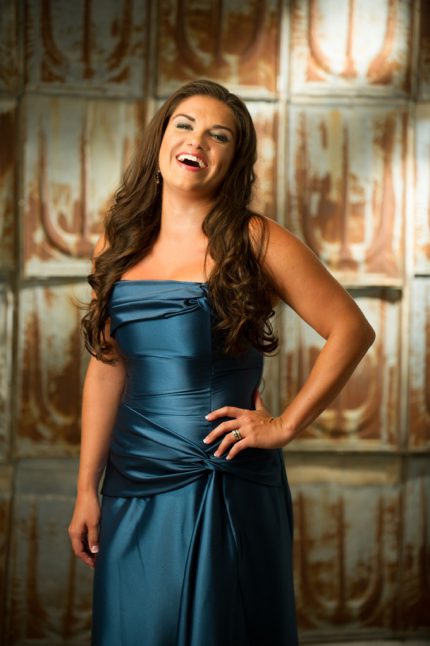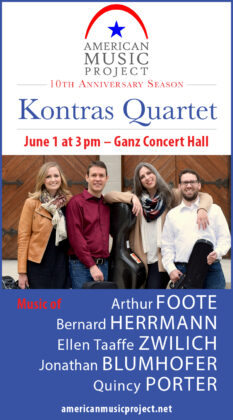Two star sopranos light up Mozart with Music of the Baroque

As programmers know, you never go wrong with Mozart. That marketing adage was proven once again Monday night by the audience that filled the Harris Theater to hear Jane Glover lead the Music of the Baroque forces in Mozart’s Mass in C minor.
Like his celebrated Requiem, Mozart’s Mass in C minor was never completed. Yet the music that exists of K.427 is so magnificent that the work stands among his finest creations.
Completions of the mass by various hands exist, but Glover opted for the traditional Robbins Landon edition, which presents only what Mozart wrote, apart from filling in some missing orchestration and choral parts.
Glover emphasized the Baroque inspiration in the Mass, bringing majestic Handelian splendor to the “Gloria,” thrusting drama to the “Qui tollis” and excitement to the stirring double chorus of the “Sanctus.”
MOB’s music director is close to unassailable in this repertory and Glover’s tempos, balancing and direction were beyond reproach. The singing of the MOB Chorus, prepared by William Jon Gray, was polished and spirited throughout as was that of the orchestra.
But it was the two star sopranos who raised this performance into something truly memorable. Indeed the singing of Kathryn Lewek and Susanna Phillips sealed this performances with vocalism of such a high order that it made one think one will never hear this music sung as well again. The two sopranos blended ingratiatingly in the “Domine Deus” and Phillips offered a sensitively sung “Laudamus Te.”
But the performance really belonged to Lewek, in the first soprano part. Currently rocking the house with her virtuosic Queen of the Night in Lyric Opera’s Magic Flute, Lewek served notice with her “Christe eleison,” rendered with pearly tone and immaculate intonation. She rose to the challenge of the “Et incarnatus est” in supreme style—spacious, radiant, and beautifully expressive, Lewek’s performance was sublime and mesmerizing.
Tenor Charles Blandy and bass-baritone Kevin Keys stepped out from the chorus for the trio of the “Quoniam tu solus sanctus” and the quartet of the concluding “Benedictus,” singing well and blending ideally with their female colleagues.
A pendant to the unfinished mass was provided with Mozart’s “Ave verum corpus,” Glover leading the chorus in a warmly affecting performance.
If her colleague got the showier opportunities in the mass, Susanna Phillips had the chance to shine in the solo spotlight in the first half with Mozart’s Exultate, jubilate. A former Ryan Opera Center member, the statuesque soprano is a popular local presence at Lyric Opera and is currently enjoying a major career. Most recently she earned high praise in the Met’s acclaimed production of Kaija Saariaho’s L’Amour de Loin.
Phillips’ refined, creamy soprano is eminently well suited to Mozart’s music, as she aptly displayed in this celebrated solo motet. A couple early entrances apart, she sang with refulgent tone and fine agility, handling the coloratura lines with ease. In the meditative “Tu virginum cornona” the soprano sang most sensitively, with evenly produced tone.
Phillips’ top notes–or the lack of them–were an issue in last season’s Romeo et Juliette at Lyric but there were no such problems Monday night. The Alabama native sailed through the coloratura challenges of the concluding Alleluja with enviable ease, hitting the climactic top note securely. Glover’s accompaniment was similarly vital and consistently alert to her soloist.
The evening began with a somewhat oddball pairing of Beethoven, both items heard in their belated MOB debuts. Glover led a sturdy performance of the Coriolan Overture, though the chamber orchestra’s string sonority felt rather thin for this dramatic music.
She segued without pause into the Prisoners’ Chorus from Fidelio in which the captives emerge into the sunlight from the darkness of their dungeons. The men of the MOB ensemble provided serviceable singing in this radiant music, and while Glover transitioned gracefully between the works, the opera excerpt suffered from being heard out of its dramatic context.
Nicholas Kraemer leads Music of the Baroque in a mixed program February 26 and 27 that includes Vivaldi’s Violin Concerto in E flat and Handel’s Concerto grosso in D minor. baroque.org
Posted in Performances




